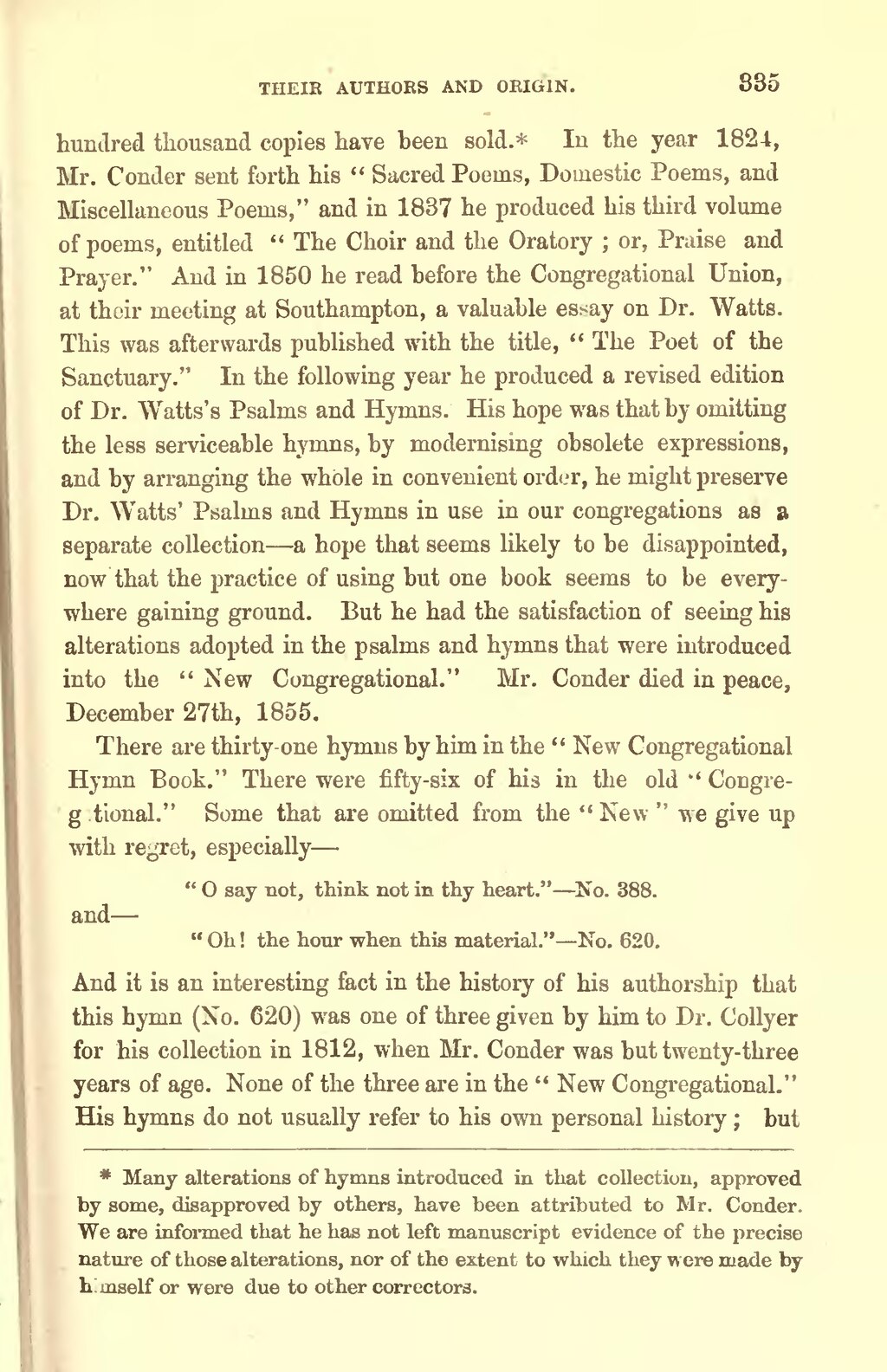THEIR AUTHORS AND ORIGIN. 835
hundred thousand copies have been sold.* In the year 1824, Mr. Conder sent forth his " Sacred Poems, Domestic Poems, and Miscellaneous Poems," and in 1837 he produced his third volume of poems, entitled " The Choir and the Oratory ; or, Praise and Prayer." And in 1850 he read before the Congregational Union, at their meeting at Southampton, a valuable essay on Dr. Watts. This was afterwards published with the title, " The Poet of the Sanctuary." In the following year he produced a revised edition of Dr. Watts s Psalms and Hymns. His hope was that by omitting the less serviceable hymns, by modernising obsolete expressions, and by arranging the whole in convenient order, he might preserve Dr. Watts Psalms and Hymns in use in our congregations as a separate collection a hope that seems likely to be disappointed, now that the practice of using but one book seems to be every where gaining ground. But he had the satisfaction of seeing his alterations adopted in the psalms and hymns that were introduced into the " New Congregational." Mr. Conder died in peace,
December 27th, 1855.
There are thirty-one hymns by him in the " New Congregational
Hymn Book." There were fifty-six of his in the old " Congre- g;tional." Some that are omitted from the " New " we give up
with regret, especially
" say not, think not in thy heart." No. 388. and
"Oh! the hour when this material." No. 620.
And it is an interesting fact in the history of his authorship that this hymn (No. 620) was one of three given by him to Dr. Collyer for his collection in 1812, when Mr. Conder was but twenty-three years of age. None of the three are in the " New Congregational." His hymns do not usually refer to his own personal history ; but
- Many alterations of hymns introduced in that collection, approved
by some, disapproved by others, have been attributed to Mr. Conder. We are informed that he has not left manuscript evidence of the precise nature of those alterations, nor of the extent to which they were made by himself or were due to other correctors.
�� �
